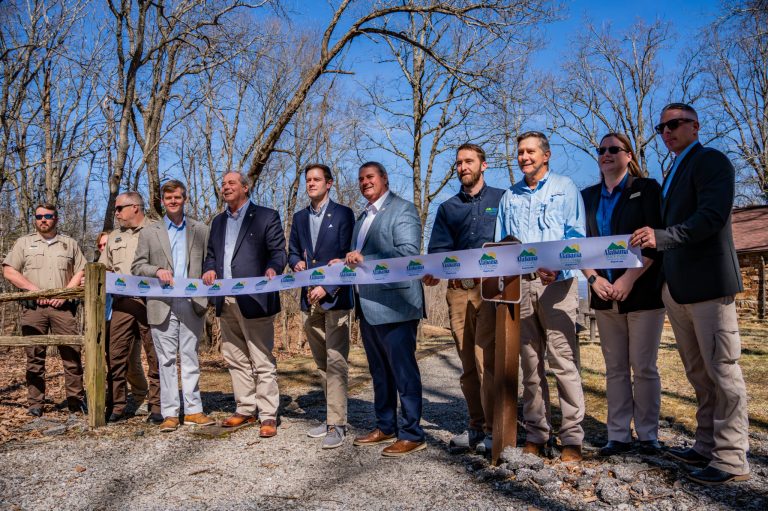Snake season in North Alabama poses the question: Is this snake dangerous?
Reading time: 4 minutes

While “snake season” does not have a defined beginning or end, we know in Alabama that when the weather gets warmer, the chances of seeing a snake in the outdoors become more likely. And message boards, social media pages and news stories begin poppong up asking, “What kind of snake is this? Is it dangerous?”
Plenty of myths and misconceptions surround snakes, and that is largely due to a lack of understanding of what snakes do and which ones can be potentially harmful. Luckily, there are ways of telling whether or not a snake is venomous.
Is it ‘poisonous?’

First, let’s get a common terminology mistake out of the way. A snake is never referred to as “poisonous.” The correct term for a snake that is potentially deadly is a “venomous” snake, in that their bite excretes a venom that can harm or even kill a human.
The Alabama Department of Conservation and Natural Resources has a guide on how to identify different kinds of snakes. And of more than 50 species of snakes found in Alabama, only six are venomous. Of those, only four are actually found in North Alabama:




The fact is that all snakes, venomous and non-venomous alike, play a vital role in a healthy ecosystem, namely keeping the rodent population down, which is extremely helpful especially in urban environments. Snakes consume the ticks and fleas and internal parasites from mammals and digest everything alike.
What should you do if you encounter a snake?

According to Dan Self, Zoological Manager of Reptiles at the Birmingham Zoo, snake encounters do not have to end in the death of the snake or an injury to the person who spots the snake.
Self said the best way to avoid being bitten by a snake is to leave it alone. Sounds simple enough, right? Well, the first reaction is sually to try to kill or scare away the snake. Bad idea.
“You are much more likely to be bitten trying to kill or capture a snake. Studies show that over half of all snake bites in the United States result from people bothering the snake. If you find one on your property and are truly concerned, call a professional wildlife removal service.”
Bill Self, Birmingham Zoo
Also, a good way to avoid snake encounters is to practice some tips for snake prevention provided by the Alabama Herpetological Society:
- Keep grass cut short. Snakes like to hide, and will not cross open and exposed areas if they can help it.
- Properly store outdoor equipment, tools, and playthings, and check thoroughly before using. Snakes like to hide. If you keep unused play equipment out, or lawn mowers, or even stacked wood, a snake might find a hiding place in them. Store things indoors when you can, wash thoroughly with a hose if possible, and carefully inspect play things such as sand boxes or play toys that are left outside before a child uses them. A clean and open area with no place to hide is not a favorite haunt of snakes.
- Keep food opportunities down. Snakes go where the food is. If you have a snake in your attic, it’s probably because you have something they can eat up there. Calling pest control companies to help take care of rodent and squirrel issues in your house will also naturally keep snakes away. Avoid leaving pet food outdoors. Pet food attracts rodents, which then attracts snakes. Clean up underneath bird feeders for the same reason.
Follow Hville Blast on Facebook and Instagram, and be sure to subscribe to our newsletter so you don’t miss announcements on what’s happening in and around Huntsville.



